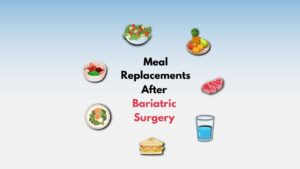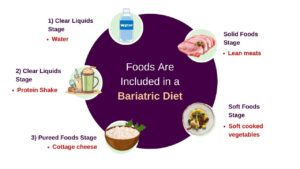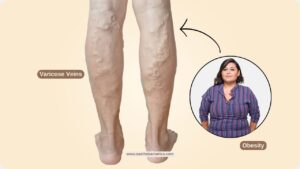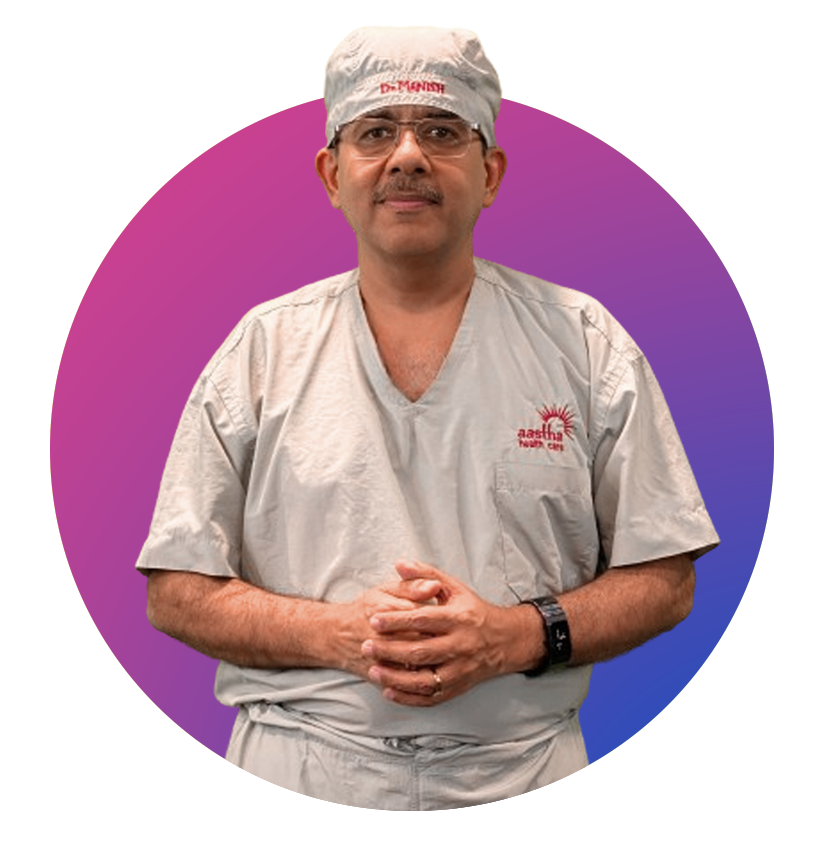
Vidhi Dave
Bariatric Dietician & Content Writer
Why Does Obesity Cause Shortness Of Breath?

Just picture yourself at the bottom of a long set of steps, staring up at the top. Before you even take the first step, your pulse rate increases, your muscles tense, and sweat begins to build on your forehead. But it’s not just the prospect of those stairs that’s giving you pause; it’s also the extra weight you’re carrying about with you, weight that’s easy to overlook but has a significant impact on your daily life. One of the most prevalent side effects of being overweight is difficulty breathing, yet this weight is more than just a number on a scale.
Crucial Complications: Obesity
Let’s take care of the important matter at hand, which is obesity, before we get into the science behind breathlessness. An excessive amount of fat deposits throughout the body is the defining feature of the medical disease known as obesity. It is not only a matter of looks or self-control; rather, it is a complicated interplay of elements including genetics, lifestyle, and the environment, which can result in significant consequences for one’s health.
Obesity is a global epidemic that affects millions of people regardless of their age, gender, or race. In addition, one of its most profound consequences is how it affects our capacity to breathe. When you carry around additional weight, it’s not just extra baggage that your joints have to endure; it’s a strain that your entire respiratory system has to bear as well.
What exactly is meant by the term "obesity hypoventilation syndrome"?
Some patients who have been determined to have obesity are at risk for developing a breathing issue called obesity hypoventilation syndrome. This condition is also referred to as Pickwickian syndrome. The process of converting food into energy results in normal exhalation of carbon dioxide, which is a waste product. Because of obesity hypoventilation syndrome, your blood will contain an unhealthy level of carbon dioxide in addition to an unhealthy level of oxygen. Without medical care, it can lead to major health concerns, some of which can even risk a person’s life.
How do you get it ?
A person’s likelihood of getting obesity hypoventilation syndrome is increased when that person is overweight or obese. The majority of individuals diagnosed with obese hypoventilation syndrome also suffer from sleep apnea.
It may be harder for you to take deep breaths if you have excess fat around your neck, chest, or across your abdomen. This fat may also create hormones that influence the breathing patterns of your body. There is a possibility that you are also suffering from an issue with the method in which your brain controls your breathing.
Obesity can also have an adverse effect on the diaphragm, which is a vital muscle that is important for the act of breathing. When the fat in the abdominal cavity pushes upward, it puts pressure on the diaphragm, which makes the diaphragm’s ability to contract and expand with less effectiveness. This reduces the amount of air that your lungs are able to process with each and every breath.
What are the signs and symptoms?
Typical symptoms include:
Breathlessness
Sluggishness or tiredness during the day, especially if you also suffer sleep apnea
Dizziness
Fatigue, often known as excessive tiredness
Headaches
In addition to the symptoms listed above, you or a loved one may notice that you frequently snore loudly, choke or gasp, or have difficulty breathing at night. Your symptoms could worsen over time.
How can you breathe easier if you're overweight?
Physical exercise and respiratory rehabilitation may also help you breathe easier.
Physiotherapists utilize cardio activities for respiratory rehabilitation, such as walking, riding exercise bikes or cross trainers, and rowing machines. They also teach breathing exercises and muscle strengthening practices that encourage good posture.
If you have shortness of breath when exercising, you should take precautions. It is suggested that you consult your doctor for a medical checkup and fitness evaluation before beginning any new type of exercise.
Who should get Bariatric Surgery?
Bariatric surgery is a medical technique intended to treat obesity, which has produced issues and health concerns.
The goal of this bariatric surgery is to treat obesity by reducing food intake using techniques to change the anatomy of the stomach.” Bariatric surgical procedures include sleeve gastrectomy and gastric bypass.
Bariatric surgery is intended for those who are significantly obese and are more than 30-40 kg overweight of their optimal body weight. The Body Mass Index (BMI) calculation can be used to determine whether your optimal Ideal body weight exists.
BMI compares your weight to your height by dividing your weight in kilograms by your height in meters squared. The BMI Calculator app makes it easy to determine your BMI. Enter your height and weight, and the BMI figure will display immediately. If the BMI is less than 25, the individual is deemed normal; if it is greater than 30, the person is labeled obese.
Patients who are recommended for bariatric surgery have a high BMI as well as a variety of obesity-related disorders. As previously stated, symptoms range from poor heart and lung function to shortness of breath to metabolic disorders such as diabetes.
Furthermore, for people who consistently fail to stick to a diet plan and exercise but are unable to reduce weight, bariatric surgery is the greatest option to avoid a variety of health issues and severe diseases.
Aastha Bariatrics is the center of excellence. Center of Excellence in Bariatric & Metabolic Surgery certification is awarded to a facility and its associated surgeons who have successfully completed the designation process of delivering high quality pre-operative and long term follow-up care.







